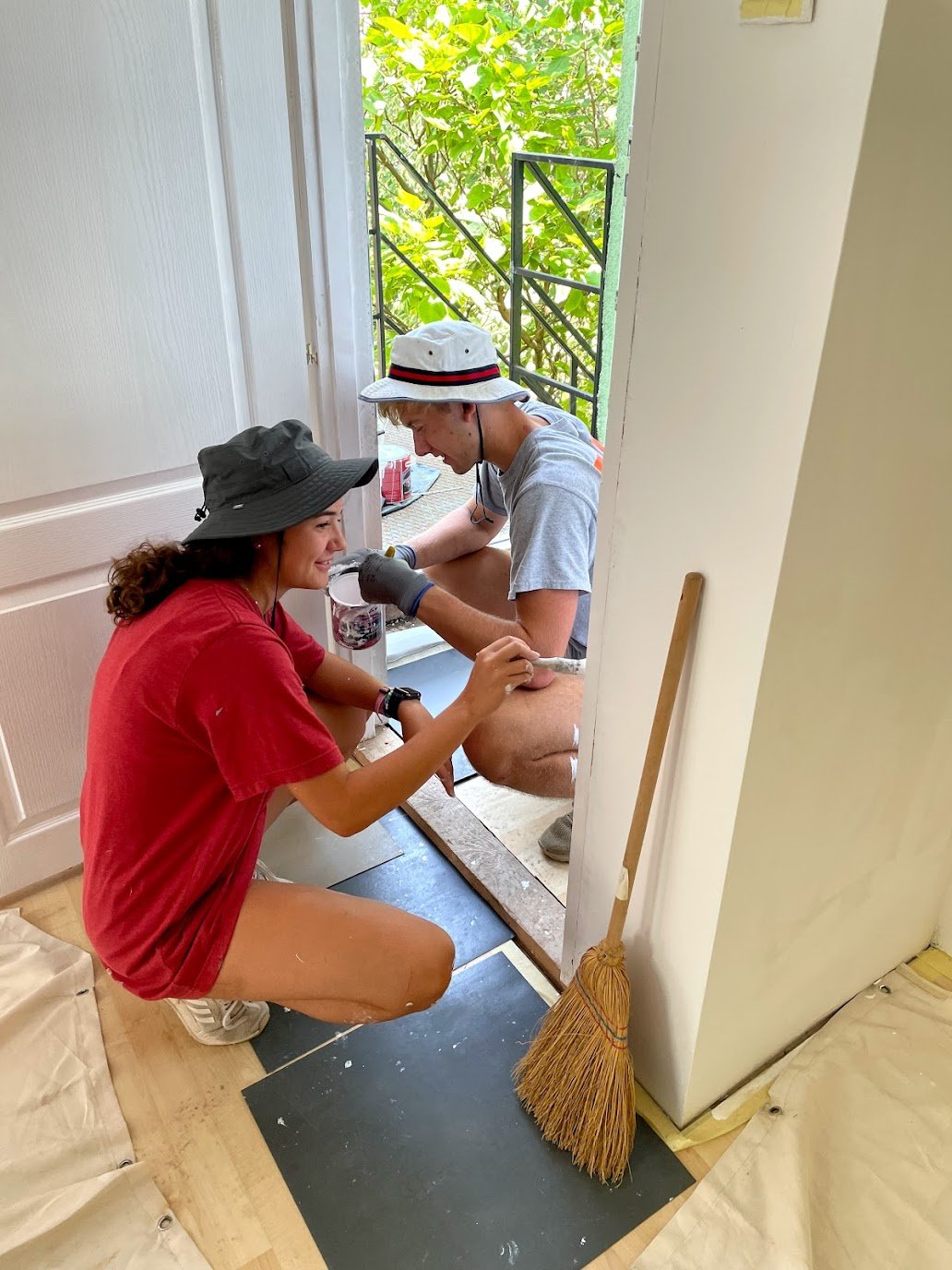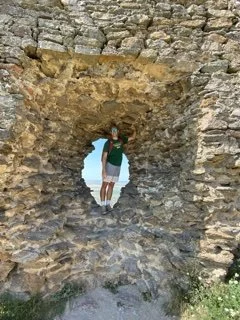Throughout my time in Romania, especially as I spent time with the Darius House kids, it became so clear to me how these disabled and abandoned children possessed love for others despite their suffering. These orphans, some of whom are now adults, grew up in terrible circumstances. One orphan named Gheata lived in a state orphanage when he was younger and because he was stronger than the other kids, he was forced by the staff at the state orphanage to discipline the other children with beatings. But due to RCE’s care, Gheata’s life has been transformed and he is now the sweetest person whose love for others is so evident.
I was struck by how, despite how much the orphans had endured throughout their lives, they continued to love and care for the other orphans around them and for the RCE staff. To the world, these disabled orphans were not worth raising because they are incapable of providing value in what they produce, but it was and has been so obvious to me for a long time that their worth comes from their humanity, which is seen by their love. Knowing this, it is impossible for me not to love them too.
On other days during my stay, several members of the RCE staff and I visited families who lived in the small villages on the west side of Romania. Here I spent time with the children tossing a ball or talking with the families in the limited ways I could. From these experiences, I witnessed how hospitable the families were.
Immediately as we would enter the gate surrounding their house, the whole family would excitedly swarm us with smiles, food, drinks, and treats. Looking at how little they had, I often felt embarrassed that they were giving so much. As I thought more about this, I realized that they wouldn't have it any other way. They couldn't help but give everything they had. Providing joy to others by being generous was of more worth to them than saving the material possessions they had. This was a lesson to me and a challenge to be more outwardly focused.
This was not the first time I was charged to consider the needs of others before my own. In many ways, outward focus became the theme of the trip and one of my biggest takeaways.
On one of these days when I was visiting families, I was eating lunch with one of the RCE employees named Dani. Not knowing Dani’s story of why he became involved with RCE, I asked him to share it with me. I was surprised when I heard his answer. Dani worked for most of his life in the city hall of Arad. He had a comfortable paying salary and didn't have many concerns that most poor families in Romania face like, “Will I have enough money to feed my family for the next month?”
One Sunday morning, roughly five years ago, Dani and his family went to church and in the sermon this question was posed by the pastor, “Are you living for Christ?” Dani’s answer in his head was immediately ‘no’. That afternoon he prayed, asking that God would give him a job where he could serve others. He promised to take the first job that was offered to him. Later that evening he went back to church and he casually mentioned his recent prayer to Ovi Martin, a friend of his and also the director of RCE. Ovi that night offered Dani a job to which he, taken aback, said he would consider. In the back of his mind, he knew he needed to accept this job. A few weeks later, Dani was offered another job paying triple what RCE would be able to pay him and double his current salary. He declined the job and soon after accepted the offer from RCE.
So to answer my question about why he started to work for RCE he simply said, “God touched my heart. I wasn’t doing anything to serve his kingdom and now I am.” Talk about a charge to think more outwardly. Dani that day inspired me.
While I may not be sacrificing my life to serve the poor and needy, I will be reminded by Dani’s story that my life is not my own and it should be lived out for others.



